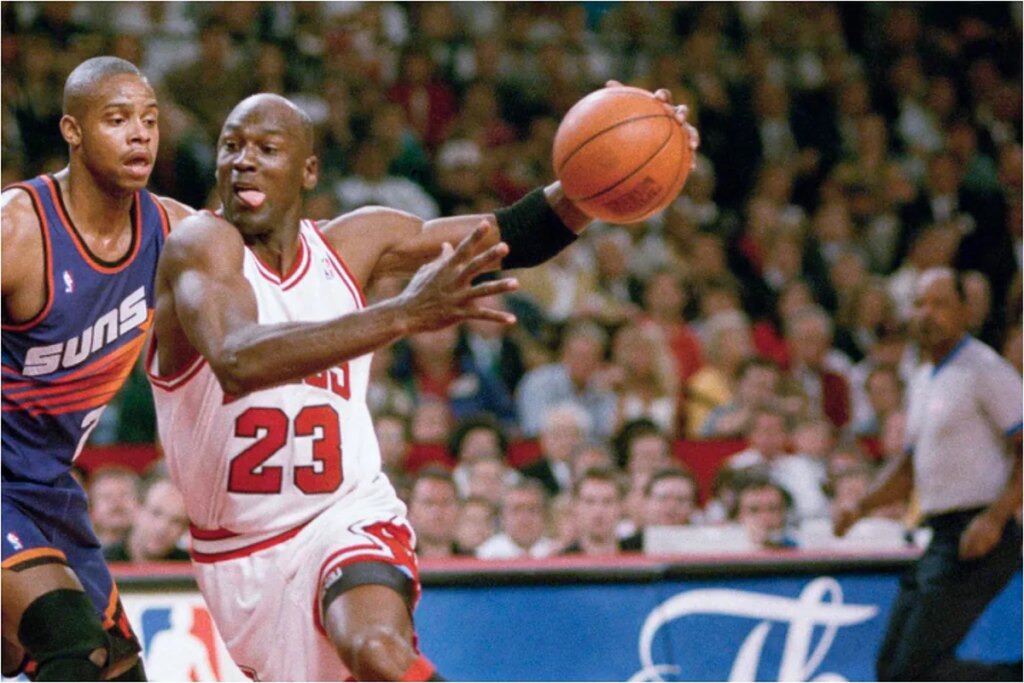Mental health problems are the order of the day in today’s society. There are many people who suffer from them in all walks of life and fortunately they have more and more help at their disposal. It took many years for them to be recognised as a disease, and sport in general and basketball in particular were not immune to them. There were many players who suffered in silence due to a lack of medical recognition and institutional support.
Those mental problems ended the careers of many players who crashed into that then insurmountable wall. One of them was Richard Dumas, a versatile 6-foot-7 forward with an explosive physique who had all the tools to become an NBA star. However, his career lasted only three seasons, cut short by mental health problems that led him to drug and alcohol abuse.
Severe anxiety and distress
At 56 years old, the former Phoenix Suns player has now detailed in great detail during his appearance on Vlad TV how that ominous time in his life was, when the bright lights, the crowd and the intense atmosphere of the NBA caused him anxiety and severe discomfort in his body and mind. “I never got too excited or overwhelmed,” he said. “Because if you prepare yourself, like I always did, you have the confidence to go out and play. So at first I wasn’t nervous.”
But as the weeks went by, he realised that something was wrong. He was overwhelmed when he was exposed to a lot of people, something inevitable playing in the NBA in front of thousands of people and fans. “The only thing that bothered me was, as it became known later, that I suffered from a mental illness that prevented me from being in crowds and things like that. Now I’m medicated, but then they didn’t have medication or anything, I couldn’t deal with all this.”
Alcohol as medicine
He then revealed how, without medical help, he tried to combat that anxiety in the worst possible way, by turning to alcohol. “Once I became aware of my imbalance, I needed something to calm me down, because what I was suffering from was that I couldn’t stand loud noises, bright lights or crowds. Those things irritated me.”
I needed something to calm me down, because what I was suffering from was that I couldn’t stand loud noises, bright lights or crowds
Those were inevitable obstacles for him in a competition where noise, lights and crowds are inherent to the tournament itself. “I played in the NBA, where there are bright lights, crowds and a lot of noise,” he said. “I needed a way not to think about it. So I’d have a six-pack of beer before every game and say, ‘Let’s go play!'”
He had been abusing alcohol since he was 15
“But I’ve been doing that since I was 15 years old,” he added, revealing that his dependence on alcohol began early. He said that he had started drinking compulsively at that age to control his mental state. And by the time he got to the NBA, it had already become a routine part of his preparation and the problem was exacerbated.
Dumas, selected 46th overall in the 1991 draft by the Phoenix Suns, burst onto the scene as a rookie after serving a one-season suspension for violating the league’s drug policy. And when he finally made his debut in the 1992-93 season, he proved his worth by averaging 15.8 points, 4.6 rebounds and 1.8 steals per game, shooting 52.4% from the field in 48 games.
He played in the 1993 final against Michael Jordan
His performance earned him a place on the NBA All-Rookie First Team and he played a crucial role in helping the Suns, led by Charles Barkley, reach the 1993 NBA Finals against Michael Jordan’s Chicago Bulls after averaging 15.8 points and 4.0 rebounds in the playoffs on 49.5 percent shooting.
However, his career soon fell apart. In the 1995-96 campaign, he played only 15 games after being suspended again for drug policy violations and disappeared completely from the league, which at the time ignored mental health issues. It was not until many years later, when NBA stars such as Kevin Love and DeMar DeRozan spoke publicly about anxiety and depression, that the league addressed the issue.
In his brief stint in the league, Richard Dumas left statistics of 10.6 points and 3.4 rebounds in 102 games, a testimonial contribution to what his legacy could have been if he had had support systems and resources to deal with the mental health problems he was suffering from.
Another mental battle… that he lost
Their story is just another mental battle that many sports professionals often face. Richard Dumas ended up losing that battle. It is a drama that could be applied to many sportsmen and women who suffered for years without any help, silently enduring that inner pain. They had no other choice.
Read the full article here


